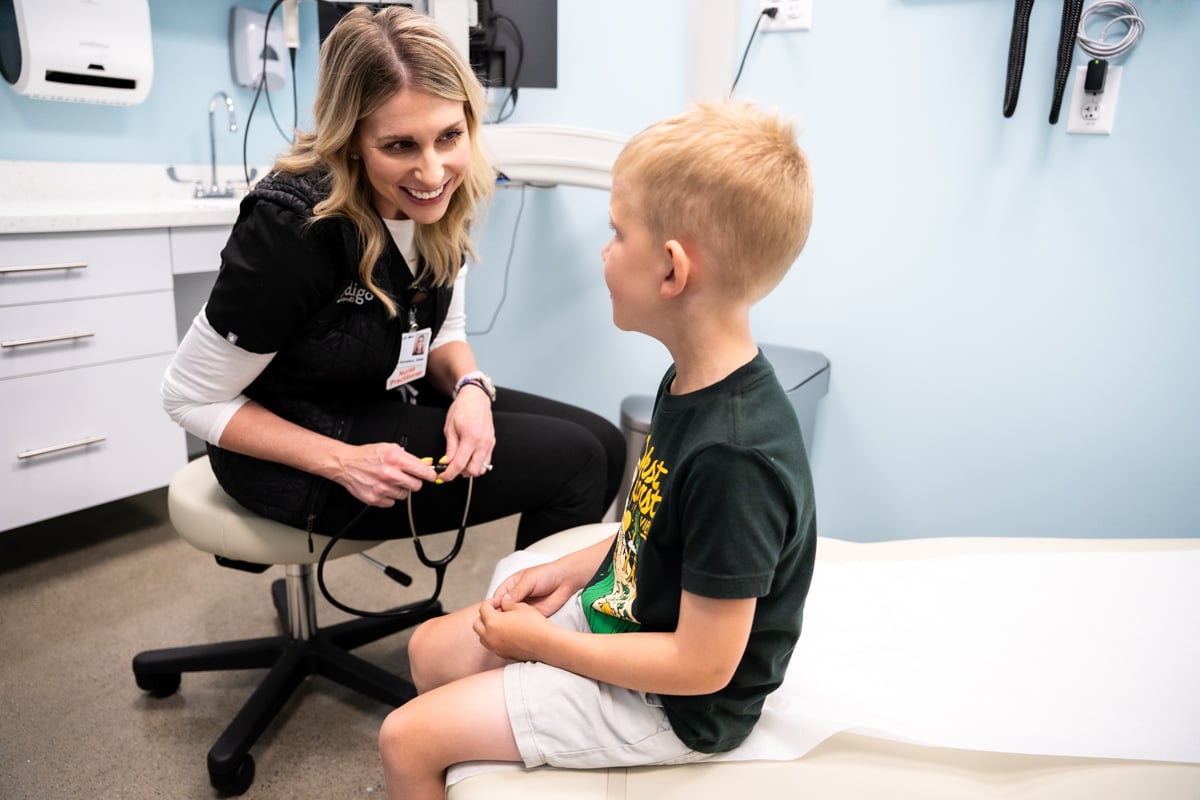Concussions are more common than you think – and more misunderstood than they should be.
A concussion is a mild traumatic brain injury that happens when the brain moves suddenly inside the skull, usually from a bump, blow, or jolt. That sudden movement can damage brain cells and affect brain function, leading to a range of physical, mental, and emotional symptoms.
Concussions are among the most common injuries and a leading reason why millions of people in the US visit emergency rooms every year. Kids and teens are especially vulnerable. Concussions account for more than half of all annual ER visits for children ages 5 to 18.
Despite how often they happen, concussions remain one of the most misunderstood medical conditions out there. Misinformation about their symptoms, severity, and treatment makes it harder to recognize when a concussion occurs – and how to respond with the right care.
Here are 8 common myths about concussions, and the facts behind this often-overlooked brain injury.
1. Myth: You have to hit your head to get a concussion.
Fact: A concussion can happen from any type of jolt, fall, or forceful movement.
It’s not just the impact to the head that causes a concussion – it’s the sudden movement of the brain inside the skull. A hard fall onto your tailbone, a car accident that causes whiplash, or even a strong body check on the field can cause one.
2. Myth: If you don’t get knocked out, it’s not serious.
Fact: Most people who get concussions don’t lose consciousness.
Fewer than 10 percent of people with a concussion will pass out. In kids, unconsciousness is even less likely. It’s far more common for people to experience other symptoms like headache, dizziness, and neck pain. Even without loss of consciousness, a concussion can have serious effects and requires medical attention.
3. Myth: If you don’t have symptoms, you’re fine.
Fact: Symptoms of a concussion can take hours or even days to fully develop.
Just because someone feels fine right after a head injury doesn’t mean they’re in the clear. Symptoms like headache, confusion, irritability, or trouble concentrating can show up later. That’s why it’s important to keep an eye out for symptoms over time and avoid rushing back into physical activity, work or school too soon.
4. Myth: You shouldn’t go to sleep after a concussion.
Fact: Sleep and rest are a crucial part of recovery after a concussion.
There’s been a long-standing myth that sleeping after a concussion puts you at risk of slipping into a coma or unconsciousness. In most cases, rest is one of the best things you can do. If you’re caring for someone with a concussion, it’s okay to check in on them periodically to make sure they’re breathing normally and showing no signs of distress. But there’s no need to wake them up unless you notice concerning symptoms.
5. Myth: Kids bounce back faster than adults.
Fact: Children and teens often take longer to recover from concussions than adults.
While kids are resilient, their developing brains are actually more vulnerable to injury. Recovery can be slower and more complicated, especially if younger kids have difficulty recognizing or describing how they’re feeling. That’s why extra care and monitoring are critical for kids and teens after a concussion.
6. Myth: Helmets prevent concussions.
Fact: Helmets protect your head, but they don’t prevent concussions.
Helmets are essential for reducing the risk of serious head injuries like skull fractures. But concussions happen from the brain moving inside the skull – and no helmet can prevent that motion. They’re important for protection, but they don’t make you concussion-proof.
7. Myth: If you feel better, it’s okay to go back to your regular exercise or sports routine.
Fact: Just because your symptoms improve doesn’t mean your brain is fully healed.
Concussion symptoms often go away before the brain has fully recovered. Jumping back into sports, exercise, or intense activity too soon can lead to a setback – or worse, a second injury before healing is complete. Always follow the advice of a health care provider and ease back into activity gradually.
8. Myth: One concussion is no big deal.
Fact: Even a single concussion is a brain injury and should be taken seriously.
There is no such thing as “just” a concussion. Even one can affect memory, concentration, mood, and sleep. And repeated concussions can lead to longer-term issues. Always take the time to rest, recover, and get checked out by a health care provider.
What are the symptoms of a concussion?
Concussion symptoms can vary from person to person. Some of the most common signs include:
- Headache or pressure in the head
- Neck pain
- Dizziness or balance issues
- Confusion or feeling foggy
- Nausea or vomiting
- Blurred or double vision
- Trouble concentrating or remembering
- Sensitivity to light or noise
- Ringing in the ears (tinnitus)
- Fatigue or drowsiness
- Sleep changes
- Temporary loss of consciousness
- Feeling more emotional than usual, such as new or increased anxiety, irritability, mood swings or sadness.
Symptoms may appear right away or over time. Always monitor symptoms and seek medical care if anything seems off.
Should I get medical care after a concussion?
Most concussions don’t require a head CT scan or a visit to the emergency room. However, any concerning head injury should be evaluated by a medical professional. Even a mild bump, shake, or jolt to the head can potentially cause a concussion.
Indigo Urgent Care is a great option for concussion evaluation if symptoms appear mild and there are no signs of severe or life-threatening injury. Indigo treats a wide range of minor illnesses and injuries, including mild concussions, neck stiffness, small scalp injuries or lacerations that may need stitches, and headaches or dizziness.
Our team will assess your symptoms, perform a neurological exam, and offer personalized care and recommendations to support your recovery. If you need more advanced care, we’ll help coordinate your next steps.
When should I go to the emergency room for a concussion?
It’s important to watch for red flags that may indicate a more severe head injury. Head straight to the nearest ER or call 911 if you experience any of the following:
- Loss of consciousness
- Severe or worsening headaches
- Repeated vomiting
- Seizures
- Clear fluid or blood from the nose or ears
- Significant disorientation or confusion
- Large or deep scalp lacerations
Indigo makes care easy
Why wait when you need care? Indigo’s expert team offers urgent care that fits your schedule – and life’s unexpected moments. Walk into any of our convenient neighborhood locations or book online for same-day and next-day visits.
Can’t make it to the clinic? Indigo offers face-to-face Virtual Care visits, available for patients 18 and older. (Virtual visits for minors must be completed by a parent or guardian.) Please note: virtual visits may refer to in-person for additional evaluation.
Whether you need in-person care or a virtual visit, Indigo makes getting the right care for a concussion simple and stress-free. We’re here every day, 8 am to 8 pm.


